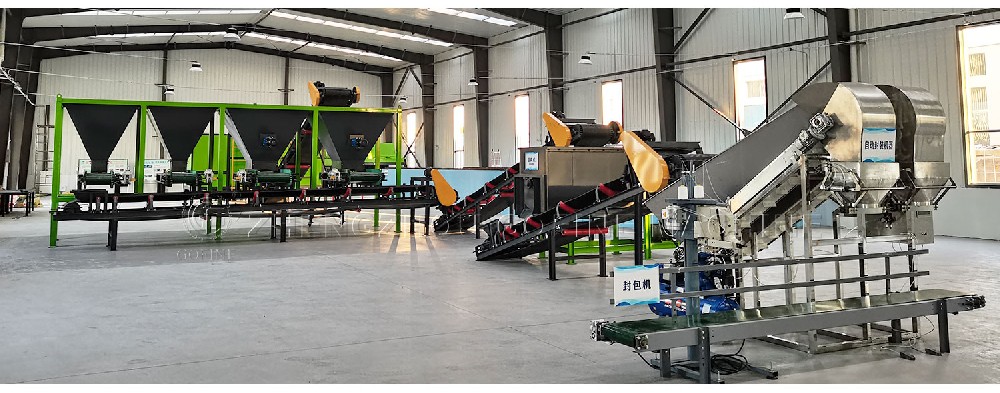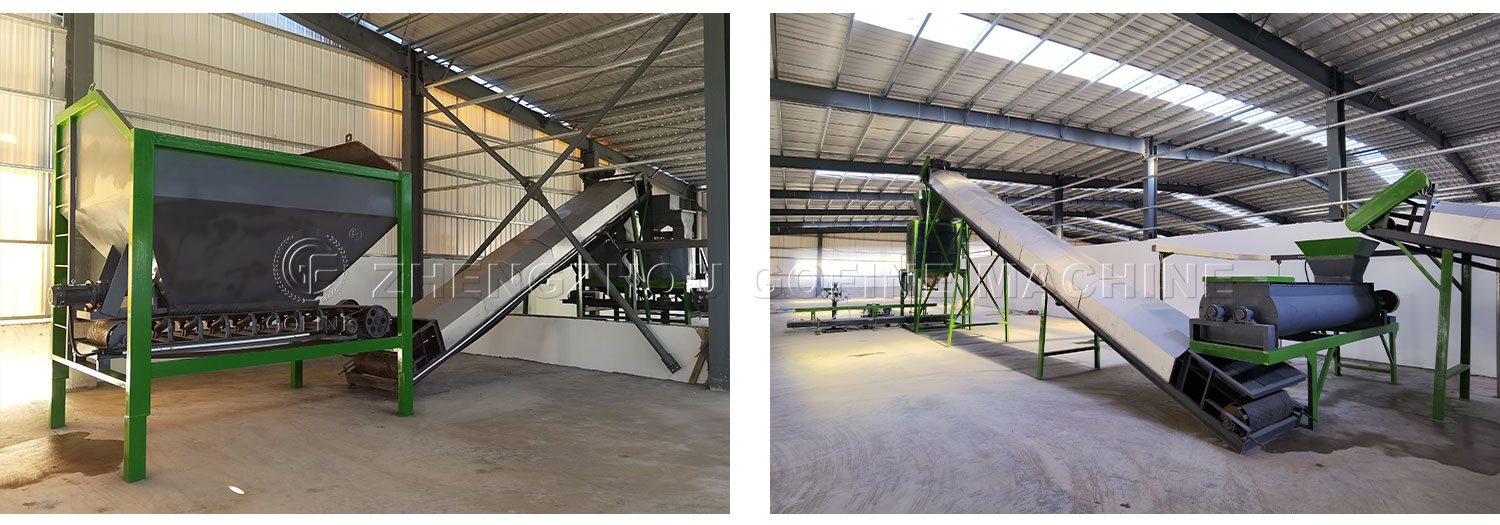
Organic Fertilizer Production Line Project | Complete Guide for Fertilizer Plant Setup
2025-08-11With the rising demand for eco-friendly agriculture, more investors and farmers are turning to organic fertilizer production lines as a profitable and sustainable business. Organic fertilizers not only improve soil fertility but also help recycle agricultural and livestock waste.
Gofine Machine provide complete solutions for starting an organic fertilizer plant, including organic fertilizer equipment, project planning, machine supply, installation, and after-sales support.
Step-by-Step Guide: How to Start an Organic Fertilizer Production Line Project
1. Analyze the Raw Materials
The first step is to determine what organic materials you will use. Common raw materials include:
Cow dung, pig manure, chicken manure
Crop residues, straw, sugarcane bagasse
Food waste, sludge, biogas residues
Compost additives (peat, zeolite, bacteria)
Understanding your raw materials helps in choosing the right organic fertilizer equipment and process.
2. Choose the Right Production Scale
Based on expected output, you can select:
Small-scale fertilizer plant: 1–3 tons/hour
Medium-scale fertilizer line: 5–10 tons/hour
Large-scale fertilizer factory: 20+ tons/hour
We offer customized fertilizer plant solutions based on your capacity and budget.
3. Select the Necessary Organic Fertilizer Equipment
Here is a typical organic fertilizer production line layout:
| Equipment | Function |
| Dewatering Machine | Reduces moisture of animal waste to <60% |
Compost Turner | Accelerates fermentation of organic materials |
| Crusher | Breaks down compost lumps into fine powder |
| Mixer | Blends compost with nutrients or additives |
Fertilizer Granulator | Shapes powder into uniform granule |
Dryer & Cooler | Reduces the moisture and temperature of granules |
| Screener | Classifies granules by size |
Packing Machine | Automatically bags the final product |

4. Design the Layout of Your Fertilizer Plant
A well-designed fertilizer plant layout improves workflow and reduces operational costs. We provide:
3D design and process flow chart
Factory layout planning
Power and water source distribution
Installation & commissioning guidance
5. Consider Environmental Compliance
Modern organic fertilizer making machines are equipped with:
Dust collectors
Wastewater filtration systems
Noise reduction mechanisms
These help your plant comply with local environmental regulations and ensure sustainable production.
6. Granulation: The Core of Fertilizer Production
The fertilizer granulator is the heart of the line. We offer:
Disc granulators – Ideal for small-scale and low-cost production
Rotary drum granulators – Durable and suitable for mass production
New type organic fertilizer granulators – Suitable for pure organic materials
Flat die granulators – For organic fertilizer pellets without drying
Choosing the right granulator machine determines your product shape, strength, and market value.
7. Packaging and Storage
The last step is automatic packing using a fertilizer packing machine. Options include:
25kg–50kg bag filling
Bulk bagging systems
Weighing and sealing integration
Proper packaging ensures product quality and shelf life.

Why Invest in an Organic Fertilizer Production Line?
✅ Turn agricultural waste into profit
✅ Reduce environmental pollution
✅ Meet growing demand for organic farming inputs
✅ Government subsidies in many countries
✅ High return on investment within 1–2 years
If you're planning to launch an organic fertilizer manufacturing project, we’re here to guide you from concept to completion. Contact us today for a customized solution, machine list, factory layout, and project quotation.
